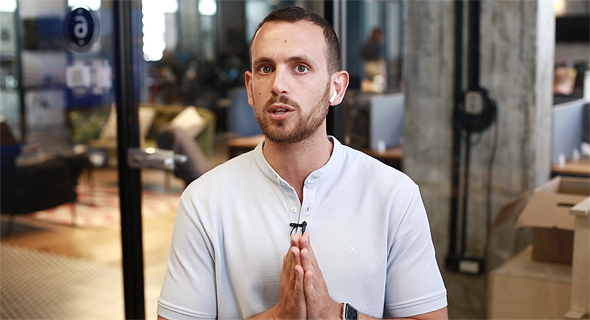"The pandemic created an opportunity for startups to create an alternative to higher education"
Roei Deutsch, the co-founder and CEO of live video course marketplace Jolt said during Calcalist and Nespresso’s “Coffee Break,” a series of talks about the employee experience in the new routine following the pandemic
11:2816.06.20
“The blow to the world of higher education was bound to come. There is a higher education bubble, something there does not work in terms of cost versus what students receive in return, and you can say that the coronavirus crisis is the beginning of this bubble’s bursting. There is talk about 400 universities closing in the U.S. People are asking themselves if they are willing to fork out $200,000 for an academic degree obtained by a pretty poor online experience. This has caught the universities and colleges with their pants down because they treat distance learning as a nice add-on to campus life while investing most of their efforts in inflating the campus experience," Roei Deutsch, the co-founder and CEO of live video course marketplace Jolt Inc. said during Calcalist and Nespresso’s “Coffee Break,” a series of talks about the employee experience in the new routine following the pandemic.
.
Founded in 2015, Jolt operates a network of campuses offering professional video courses to tech workers in all career stages. Jolt’s courses are presented by internationally acclaimed experts and executives from leading tech companies including Amazon, Google, Linkedin, and Netflix.

Jolt co-founder and CEO Roei Deutsch. Photo:Tal Azulayצילום: טל אזולאי
However, he does not think the coronavirus crisis will lead to the collapse of the higher education world. "When I say that the higher education bubble is bursting, I'm not saying that the whole industry will fail or even that I want it to. I think that academia is the most important means of advancing human intellect. The bubble is in the industry built around obtaining a degree, its price, and its inefficiency. There is a near consensus that there is no match between acquiring a degree and success in the business world," Deutsch said.
What the crisis has changed very clearly is the motivation of academic institutions to connect up with startups and make a change in the way they do things, he said. "Until six months ago, the universities were not open to it. Even the bodies that tried to produce positive changes like the nonprofit industry are very afraid of changes and are not very innovative; only a significant event like what is happening now can change that," Deutsch said.
Deutsch referred to the fight against racism and the protests occurring in the U.S. and which are spreading to other places. "Getting down to the depth of what George Floyd's immoral murder sparked is a fight against bias and racism and unrest that I see spreading to the struggle for establishment and privilege and the white elite, which keeps the rich and the top 1% in place. The remaining 99% have to realize that they will likely never be able to study at Stanford or Harvard, which are the largest wealth generators in the United States. This touches on the deep roots of the unrest in the United States stemming from inequality, unequal opportunities, and the possibility of unmeasured social mobility. All of this has a deep connection and will mislead anyone who will not connect these two big events going on in 2020 and the way they are going to change, from end-to-end, both the business world and the world of economics," Deutsch said.



